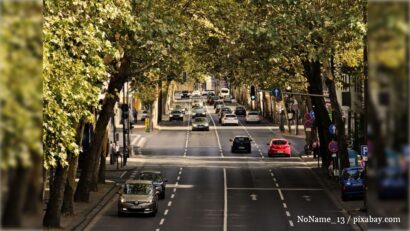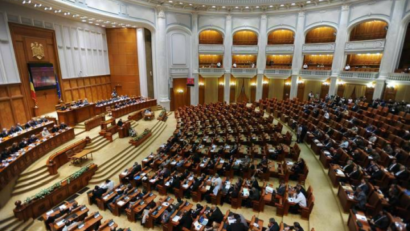Protests and reactions to proposed changes to criminal code
The controversial changes in the area of justice envisaged by the Government continue to make the headlines in Romania.

Florentin Căpitănescu, 20.01.2017, 14:03
Less than a month after being sworn in, the
Government in Bucharest already stirs up negative reactions due to some major
changes it wants to bring to the justice system. Civil society, judicial
institutions, the US Embassy in Bucharest, opposition parties and President
Klaus Iohannis have all criticised in more or less diplomatic terms the plans
of the Grindeanu government, made up of representatives of the Social
Democratic Party (PSD) and of the Alliance of Liberals and Democrats (ALDE),
referring to collective pardoning and the elimination of a number of crimes
related to corruption.
Unlike the Government, that says this plan is
intended as a solution to prison overcrowding, its opponents see the changes as
a ticket to freedom for many influential people convicted in recent years. On
Thursday evening, thousands of people took to the streets of the capital
Bucharest and several other cities asking for zero tolerance for corrupted
people and denouncing what they see as an attack on democracy.
Also, the General Prosecutor’s Office, the National
Anti-Corruption Directorate and the Directorate for the Investigation of
Organised Crime and Terrorism have firmly criticised the bills proposed by the
Government, warning that they will not only benefit some corrupt people now in
prison, but also some dangerous criminals and paedophiles. The representatives
of the three institutions have argued that these changes would partially or
totally decriminalise the crimes of abuse of office, actionable negligence and
conflict of interests. The chief of the Anti-Corruption Directorate Laura
Codruta Kovesi explains:
The Romanian
judiciary is being reformed, at high speed, by amending three crimes: abuse of
office, actionable negligence and conflict of interests. These three types of
crimes can only be committed by public officials, that is ministers, state
secretaries, senators, deputies, magistrates, policemen, mayors, county council
presidents and directors.
The Superior Council
of Magistracy must analyse the draft emergency orders proposed by the
government by January 27. Talking about this situation, the US ambassador to
Bucharest Hans Klemm has said that any measure that weakens the rule of law is
inappropriate, while the National Liberal Party and the Save Romania Union, in
opposition, say they are considering calling for a no-confidence vote in
Parliament against Justice Minister Florin Iordache. Also, President Klaus
Iohannis has recently said that passing such legislation would destroy the rule
of law and push the country away from the European and Euro-Atlantic values. It
remains to be seen if the Government goes ahead with its plans or takes a step
back amid all the pressure.






























